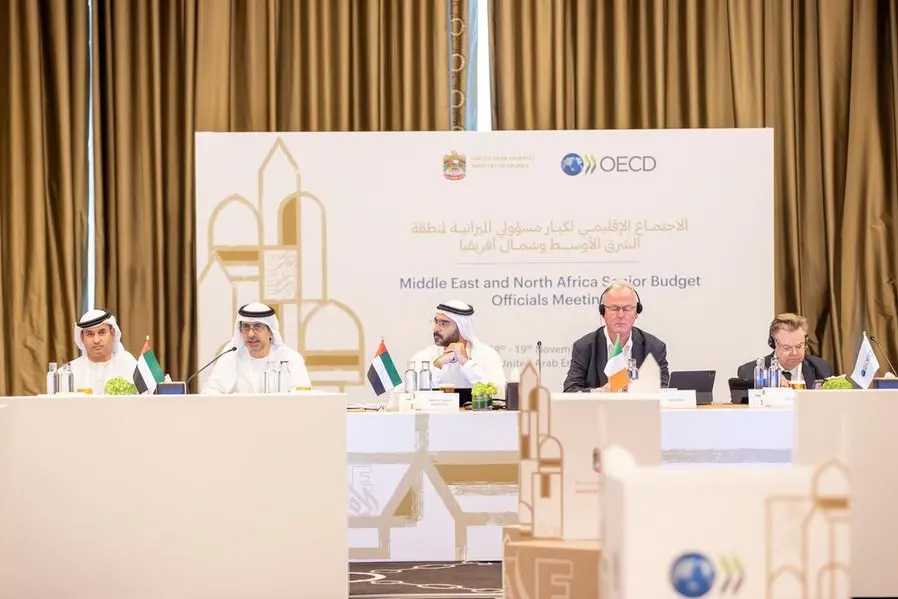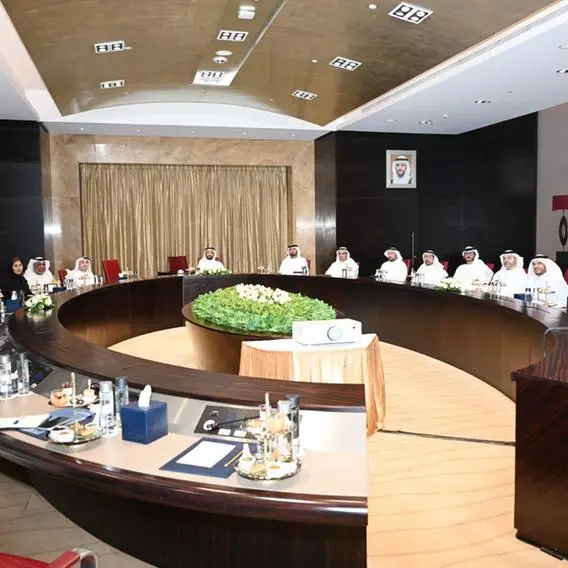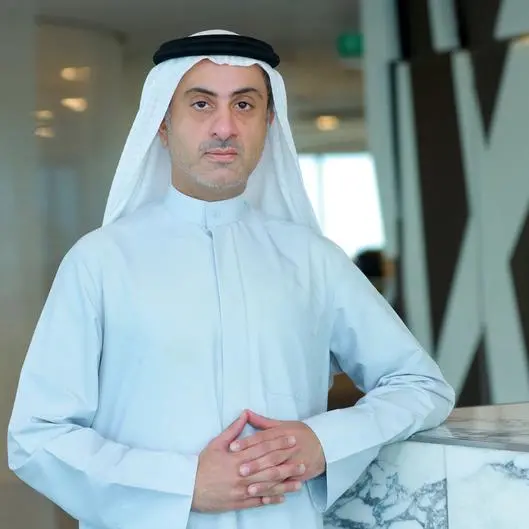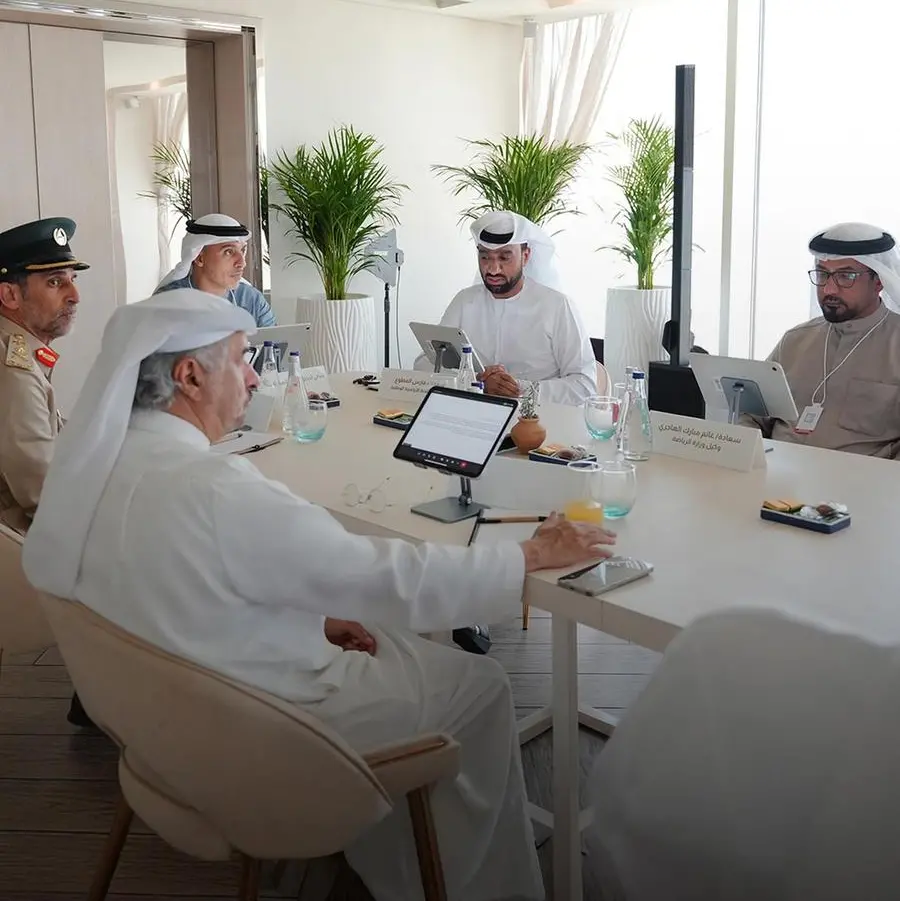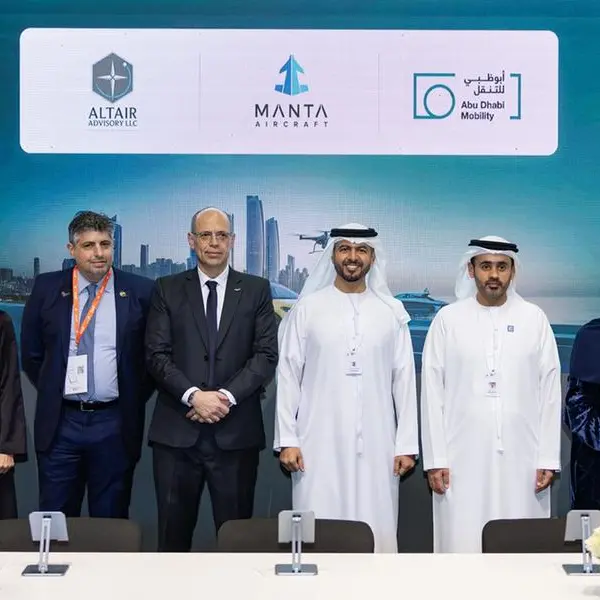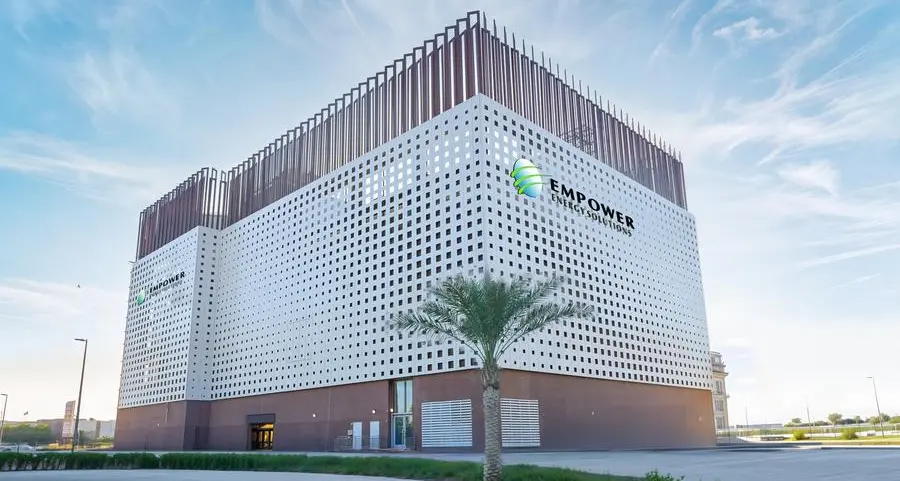PHOTO
- Discussing innovative financing mechanisms to attract private investment through public-private partnerships
- Highlighting role of performance budgeting in enhancing public spending efficiency
- Reviewing methods to enhance financial literacy and public understanding of fiscal issues
- Exploring the application of generative artificial intelligence techniques in budgeting
- Younis Haji AlKhoori: Global economic changes require cooperation and innovation to enhance financial resource management capabilities and achieve sustainable development goals
Abu Dhabi: Senior budget officials from the Organisation for Economic Cooperation and Development (OECD) for the Middle East and North Africa today discussed the latest developments in public budgeting and spending in a meeting hosted by the UAE’s Ministry of Finance in Abu Dhabi.
The meeting explored ways to enhance cooperation and share knowledge and experiences among regional decision-makers on public financial management.
The meeting was attended by H.E. Younis Haji AlKhoori, Undersecretary of the Ministry of Finance; H.E. Saeed Rashid Al Yateem, Assistant Undersecretary for Government Budget and Revenue Sector at the Ministry of Finance; Ali Abdullah Sharafi, Acting Assistant Undersecretary for International Financial Relations Sector; and Fatima Yousef Al Naqbi, Acting Assistant Undersecretary for Support Services Sector, along with senior budget officials and managers from various Middle Eastern and North African countries, and representatives from local UAE financial departments.
Leading Position
In his opening remarks, AlKhoori emphasised that the selection of the UAE to host such international meetings, reflects the leading role the country has achieved in financial and economic management.
He highlighted the commitment of the UAE's wise leadership to positioning the nation as a global hub for hosting influential regional and international events.
H.E. noted that this meeting, hosted by the UAE for the second consecutive year, comes at a time of increasing global economic shifts, underscoring the need for cooperation and innovation to improve the management of financial resources and advance sustainable development goals.
“The UAE firmly believes in the importance of international cooperation in tackling global economic challenges,” AlKhoori said. “Our experience has demonstrated that investing in digital infrastructure, adopting cutting-edge technologies, and enhancing transparency and accountability are key factors in achieving sustainable economic growth. The UAE’s role at this stage goes beyond hosting meetings; it extends to actively contributing to the formulation of global economic policies.”
Development Priorities
His Excellency underlined the importance of the meeting, discussing a wide range of topics, including the use of innovative financing mechanisms and digital and green transformations, and the application of artificial intelligence in budgeting and public spending.
He explained that these technologies are key to improving the efficiency of resource management, aligning spending with strategic priorities, and enhancing performance monitoring, which is essential for developing public financial management, ensuring spending efficiency, and enabling more informed decision-making.
AlKhoori also highlighted the Ministry of Finance’s efforts to increase transparency and flexibility in budget planning and resource allocation, adding that modern digital tools facilitate better integration across sectors, accelerate progress, and help adapt financial policies to the rapidly changing global economy.
“This digital integration,” he said, “supports our strategic goals by enabling data-driven financial decisions, maximising resource utilisation, and focusing on national development priorities.”
Panel Discussions
The two-day meeting included sessions that offered opportunities for exchanging experiences and discussing key developments in public financial management in the region. Discussions covered various topics, such as budget preparation, improving public spending efficiency, and adapting to economic challenges and opportunities at both regional and global levels.
Participants explored innovative financing mechanisms and strategies to attract private investment, especially through public-private partnerships, to finance essential projects.
They also highlighted the benefits, opportunities, and challenges of these mechanisms, their integration into budget and public financial management systems, and the financial risks associated with these transformations.
The meeting featured a session on enhancing financial literacy and public understanding of fiscal issues to support sustainable financial policies. Another session focused on the use of generative AI in budgeting and public spending.
A session dedicated to performance budgeting explored ways to improve public spending efficiency by clearly outlining spending outcomes and providing decision-makers with the necessary data for informed budget decisions.
Participants discussed the practical challenges of implementing performance budgeting and reviewed the best practices adopted by the OECD to strengthen spending effectiveness and achieve strategic goals.
Last year, the UAE hosted the annual meeting of senior budget officials from the OECD for the Middle East and North Africa in Dubai from 19 to 20 September.
For further information, please contact:
Rami El Hussari
Government Communication Department - MOF
+97152 975 0808
relhussari@mof.gov.ae
Ahmad Aldwairi
Misbar Communications
+97156 783 5363
ahmad.aldwairi@misbar-me.com
Hudoob Younis
Misbar Communications
971 55 899 3766
hudoob@misbar-me.com
